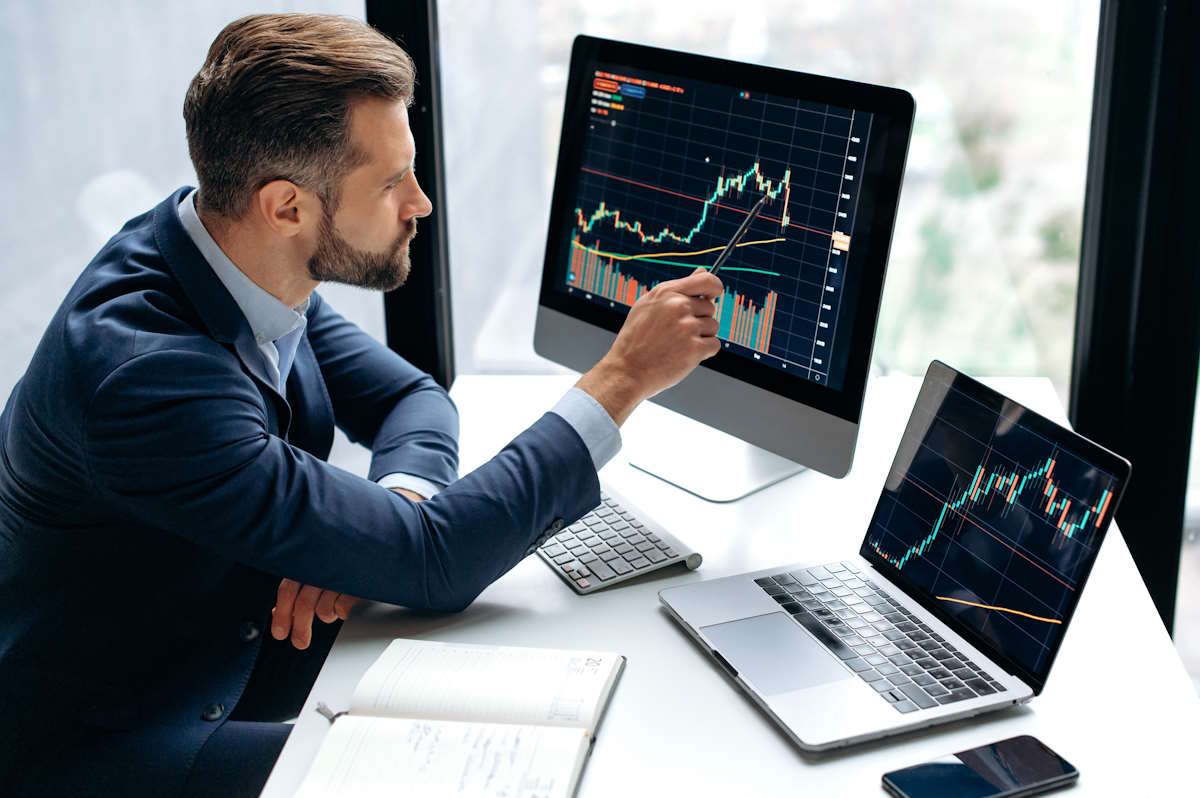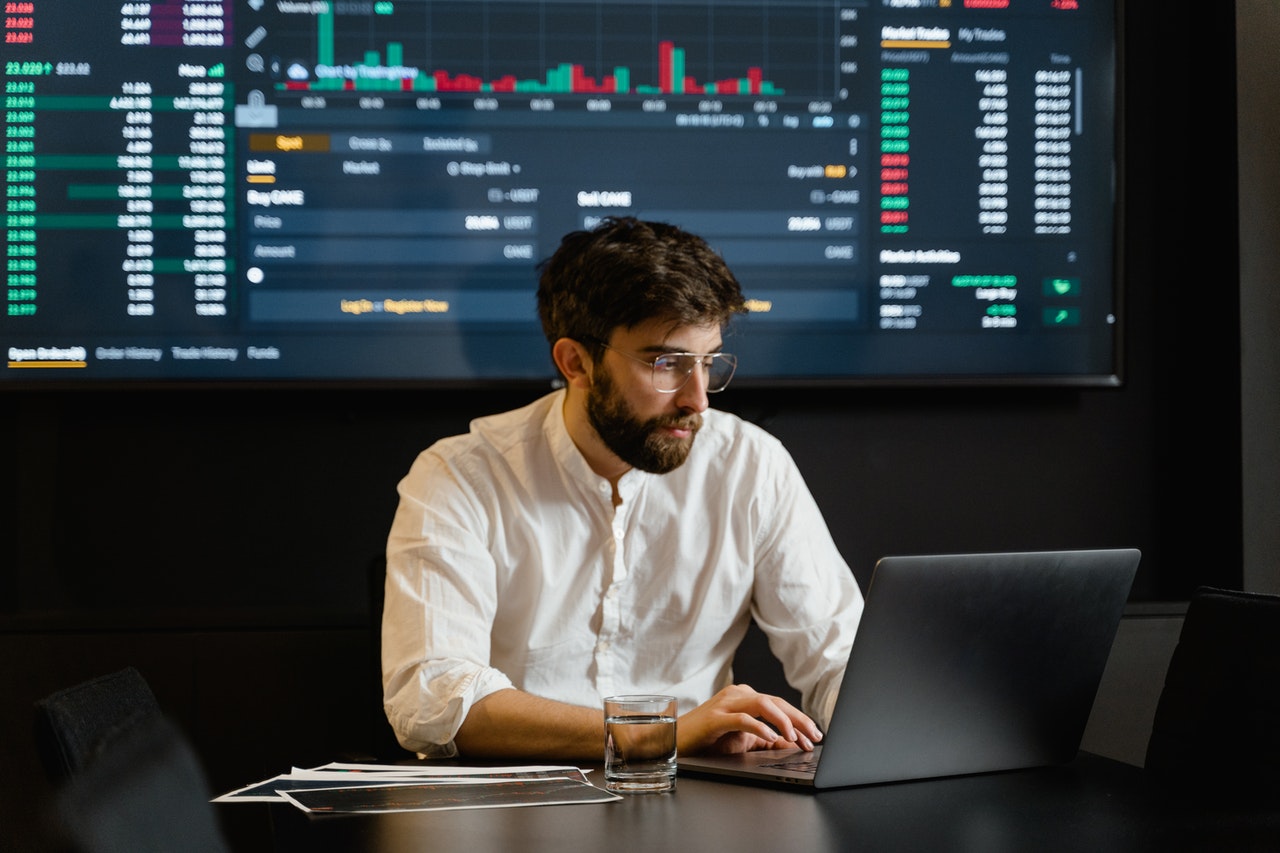The idea of letting a robot trade your money sounds both exciting and terrifying. On one hand, it promises discipline, speed, and data-driven precision. On the other, it feels like surrendering control to a machine that might not understand market chaos or human intuition. So, can you really trust an AI trading bot to manage your capital? The answer is not black and white. It lies somewhere between technological excellence and human oversight.

The Promise of Artificial Intelligence in Trading
Artificial intelligence has revolutionized trading in ways that were once hard to imagine. It can process enormous datasets, recognize subtle patterns, and react to changes faster than any human could. AI trading bots tickeron.com/bot-trading/ combine statistical analysis, technical indicators, and real-time data to generate trading decisions with minimal emotional bias.
Here’s what makes them so attractive to traders:
- Speed and precision: AI reacts to market changes in milliseconds, executing trades the moment conditions align;
- Emotion-free decisions: No panic selling or FOMO buying – only data and probability;
- 24/7 monitoring: Unlike humans, bots don’t sleep, meaning they never miss an opportunity;
- Scalability: AI can manage multiple markets, assets, or strategies simultaneously;
- Consistency: The system follows rules, not moods, ensuring discipline on every trade.
For many traders, that consistency alone is reason enough to trust automation.
Where AI Trading Bots Excel
AI bots shine in structured, data-heavy environments where human intuition often fails. They thrive on repetition and measurable logic.
- High-frequency environments – AI dominates where milliseconds matter, scanning hundreds of instruments at once.
- Pattern recognition – Bots identify repeating price structures and correlations invisible to the naked eye.
- Backtesting and optimization – Algorithms test thousands of scenarios before going live, building statistical confidence.
- Risk management – Bots can set stop-losses, limit orders, and dynamic position sizing with precision.
In essence, AI brings a level of discipline and endurance that no human can sustain.
The Human Factor: Where Robots Still Fall Short
Despite all the advantages, AI trading bots are not infallible. They are powerful, but they operate within limits defined by code, data, and logic. And markets don’t always play by those rules.
- Unpredictable events: Political crises, black swan events, or sudden regulatory actions can confuse even the best AI model.
- Data dependency: AI is only as smart as the data it learns from. Biased, incomplete, or manipulated data leads to poor decisions.
- Overfitting: A common pitfall where models perform perfectly in backtests but fail in live markets.
- Lack of intuition: Markets are not purely mathematical; sometimes, mass psychology drives price action in ways no algorithm can anticipate.
- Systemic risks: If many bots act on similar logic, they can amplify volatility and cause flash crashes.
The best traders know that AI should enhance human decision-making, not replace it entirely.
Finding the Balance: Human + AI Collaboration
The smartest way to use an AI trading bot is not to trust it blindly but to work with it strategically. Humans provide context, intuition, and adaptability – AI provides consistency, speed, and analytical power.
Here’s how professional traders combine both:
- Set the framework: Define clear goals, risk limits, and trading styles before deploying automation;
- Supervise performance: Monitor live results, adapt settings, and stop the bot if the market shifts dramatically;
- Combine signals: Use AI-generated alerts as confirmation for manual decisions;
- Diversify approaches: Run multiple models or bots across different strategies to reduce dependence on one algorithm.
In this model, AI becomes a partner, not a master.

The Ethical and Psychological Side
Trusting a machine with your money also raises deeper questions. Some traders feel uneasy because AI decisions can be opaque – they don’t always explain why a trade was made. Transparency and explainability are becoming key features of modern platforms.
At the same time, psychology matters. AI helps remove emotional bias, but it can also make traders complacent. When profit comes automatically, vigilance tends to fade. Responsible traders understand that automation still requires awareness.
Cautious Trust, Not Blind Faith
So, can you trust a robot? Yes – but with clear rules, constant supervision, and a healthy dose of skepticism. AI trading bots can analyze faster, execute more precisely, and remain calm when markets go wild. But they don’t understand greed, fear, or geopolitics the way humans do.
The real power emerges when human intelligence and artificial intelligence work together. Traders who blend automation with insight gain the best of both worlds: the efficiency of a machine and the wisdom of experience.
Trust your bot – but verify its every move. That’s how modern trading truly evolves.